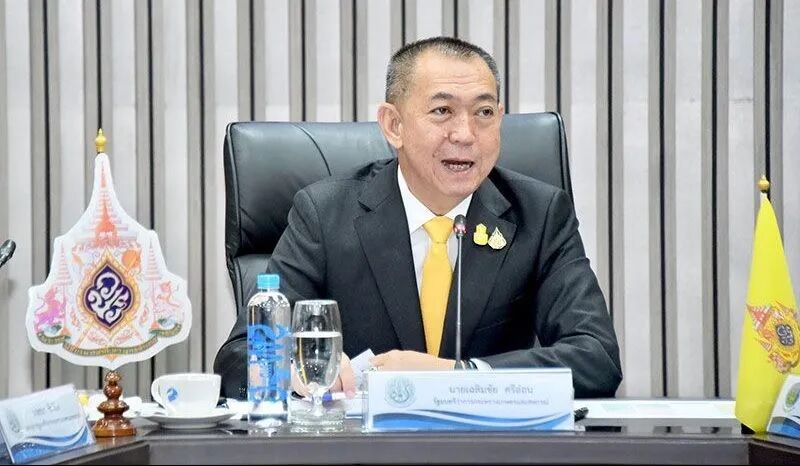Democrat Party’s dwindling popularity prompts talks of new political formation

The Democrat Party is grappling with dwindling popularity as internal disputes have left it in a state of chaos. The party, known for its astute opposition role, recently reviewed the government’s budget bill for 2024 in a parliamentary debate. However, the past few years have seen the party suffer from various setbacks, including the departure of experienced party members and internal discord.
The party is now facing a crisis of trust, and the responsibility to turn the tide and restore unity within the party rests on its new leader, Chalermchai Sri-on. Chalermchai, who had previously sworn to retire from politics if the Democrats won less than 52 seats in the previous year’s elections, not only broke his pledge but also ran for party leadership following the party’s poor electoral performance.
Chalermchai’s election as party leader on December 9 was unchallenged and overwhelming. However, this leadership contest led many analysts to predict the demise of the country’s oldest political party. In response to rumours that the Democrats may join the coalition government led by Pheu Thai under his leadership, Chalermchai stated that the party is committed to its opposition role.
“The party will not serve as a spare part [for the Pheu Thai-led government as alleged.”
Stithorn Thananithichot, director of the Office of Innovation for Democracy at King Prajadhipok’s Institute, advised taking Chalermchai’s comments with caution.
“His words should only be believed after the Democrats have remained in the opposition camp until the end of this government’s four-year term.”
The departure of several long-standing party members has led to speculation about the formation of a new party. High-profile individuals who have left the party include former prime minister Abhisit Vejjajiva, former Deputy Public Health minister Sathit Pitutecha, and former PM’s Office minister Sathit Wongnongtoey.
Dynamic Leaders
There are talks among these individuals and current members about the establishment of a new party that will uphold a conservative, pro-monarchy stance while also embracing change, and upholding the rule of law and justice. This new party would be a collaboration between experienced politicians providing strategic advice and a team of young, dynamic leaders actively representing the party.
According to Surachart Bamrungsuk, a political scientist at Chulalongkorn University, Conservative parties will never fade away.
“A new party would not only have to contend with the United Thai Nation (UTN) Party, which also adheres to conservative ideologies but also the popular Move Forward Party among young voters, reported Bangkok Post.
“I want to see a conservative party become a mainstream party. Such a party should not bow to the military. The new party should focus mainly on tackling the unrest in the Deep South.”
Veteran politicians who remain with the Democrat Party, such as Chuan Leekpai and Banyat Bantadtan, should also support and guide young party members through difficult times, according to Surachart.
Watanya Bunnag, Democrat Party Political Innovation Committee Chairperson, is seen as the party’s rising star. However, she needs further mentoring from experienced party figures. The 39 year old Watanya wanted to run for party leadership but was unable to do so due to insufficient support to waive a rule requiring a candidate to have been with the party for five years, said Olarn Thinbangtieo, a political science lecturer at Burapha University.
“Several parties shy from adopting conservativism because they fear they will lose support from young voters. But we must admit that conservative parties still have a following; they only need to adjust to changing circumstances.”
Latest Thailand News
Follow The Thaiger on Google News:


























